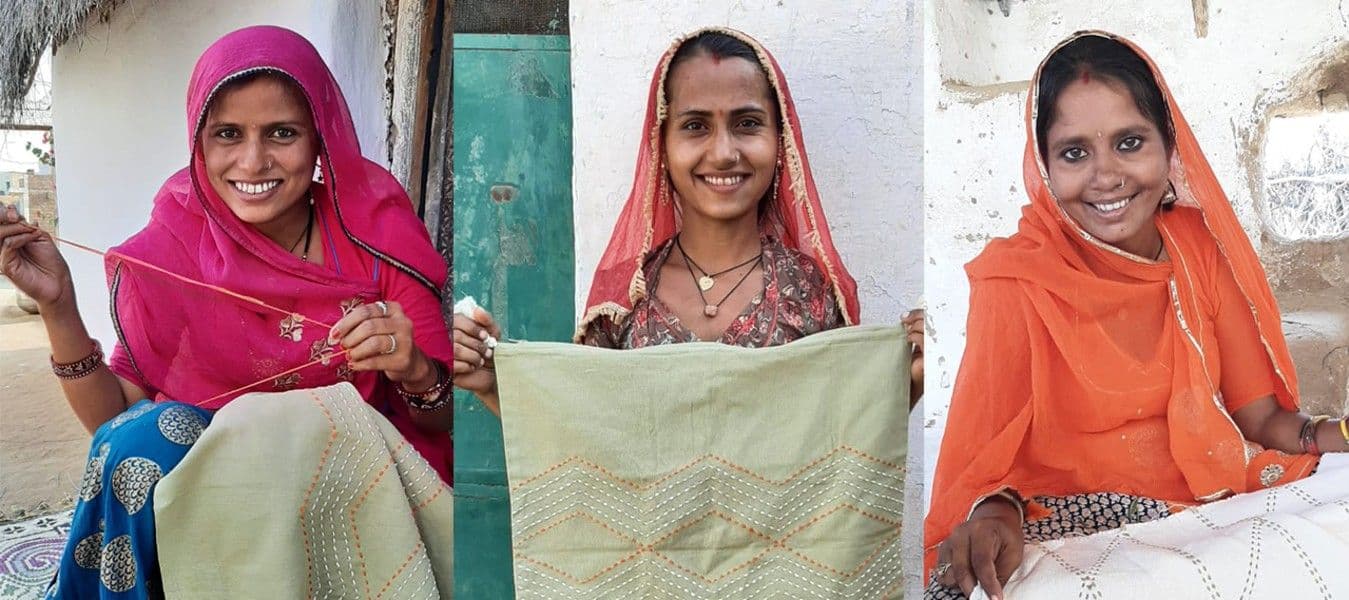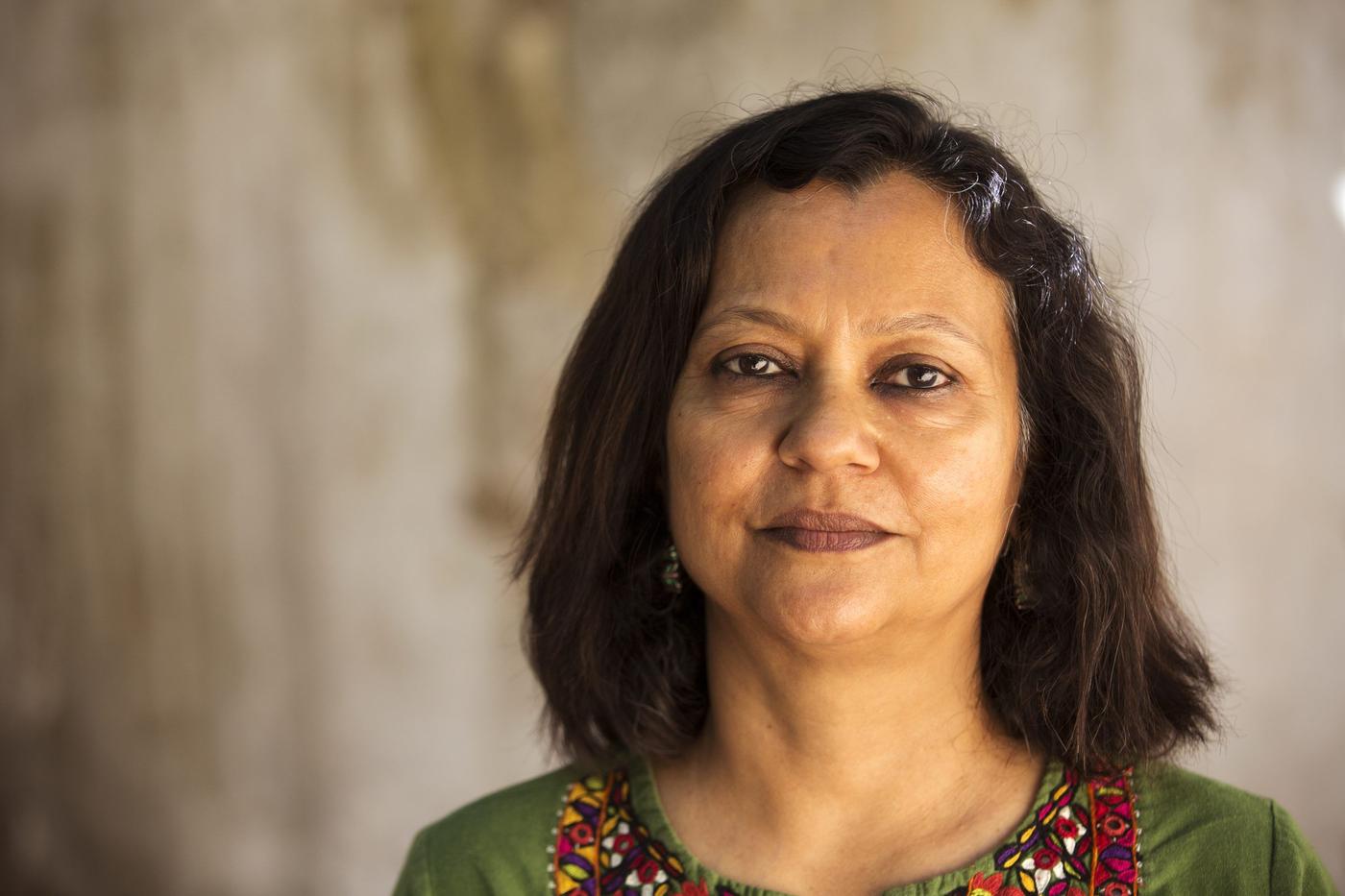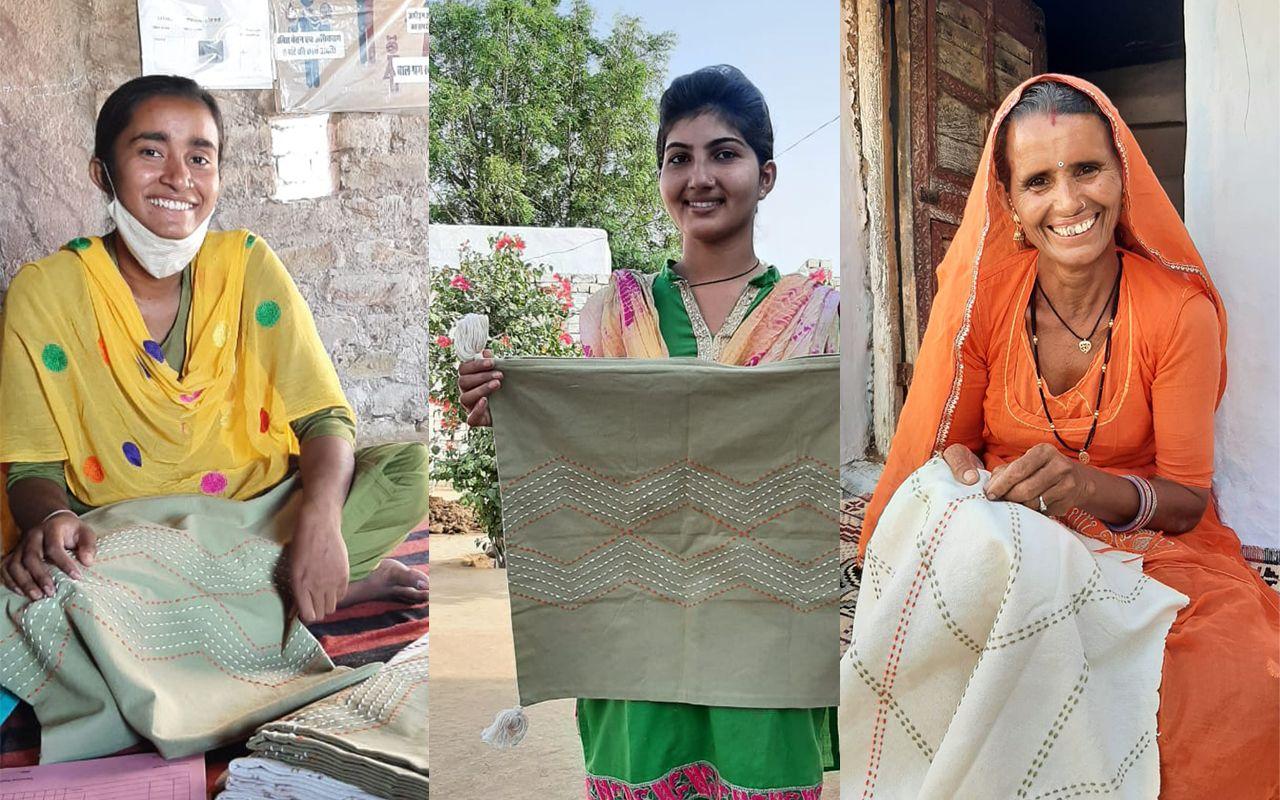
Handcrafting at home through hard times
Rural India was severely hit by the COVID-19 pandemic, and many of the artisans at the social entrepreneur Rangsutra worried about losing their income. We talked to Sita and Sumita about how they managed to find new ways to continue their operations after the lock-down, and the work with HERVOR and HALLVI handmade pillowcases.
Sita lives in the Bikaner district of Rajasthan, in the northwest of India. She is one of the Rangsutra artisans currently working with the handmade cushion covers HALLVI and HERVOR. When the nationwide lockdown was imposed in March to contain the spread of the coronavirus, Sita worried that she would lose her income. She and her husband had taken a personal loan to renovate their house, and without her job as a seamstress at one of the Rangsutra production centres, they would fall behind on the payments.
Rangsutra is a social enterprise in India with over 2000 artisans in their network, where most of them are also shareholders in the company. The enterprise acts as a bridge between the artisans and global consumers in order to develop sustainable livelihoods and has been an IKEA partner for more than eight years. Together with IKEA, affordable, handcrafted products are created, merging IKEA design and local techniques. More than 800 artisans work with handmade IKEA products at local centers near where they live.
For the woman artisans, the lockdown has had grave implications. Not only did they lose economic independence, many male members of their families who worked in other cities also lost their jobs and returned home. In some cases, entire families had lost their livelihood.
“Our first action was to reach out to all the artisans to check on how were they doing physically and mentally. The artisans were assured that Rangsutra was with them in this difficult time and would continue as a partner. Initially, we were not sure about the status of IKEA orders but soon it became clear that we would continue with the production of KLARAFINA and MOAKAJSA pillowcases,” says Sumita Ghose, founder of Rangsutra.

While the lockdown has ended, the pandemic and preventive restrictions remain. Rangsutra has had to find new ways to continue their operations.
”As the lockdown slowly lifted Rangsutra and IKEA planned for a model where artisans could work on the products from their home. What was in our favour was that our products are handmade which only needs the artisans’ fabric, thread and needle which could be easily taken to the artisan homes. Our artisans have already participated in trainings, and no large-scale factory set up was needed,” says Sumita.

Knowing that social entrepreneurs like Rangsutra are acting as frontline responders during the pandemic, it was important for IKEA to confirm the planned orders early. IKEA Social Entrepreneurship B.V, established in 2018, was also able to turn grants designed to accelerate social businesses into emergency relief grants. This way Rangsutra could continue to pay the artisans’ wages during the lock-down, providing livelihoods and services to some of the most vulnerable populations.
”Empowering women, sustaining handicraft, supplementing incomes during the pandemic – all this was possible because of the strong partnering of the IKEA spirit and focused business approach of the supplier. Striving to meet the IKEA vision of creating a better life for the many people brought about true cooperation,” says Disha Saluja, responsible for Rangsutra operations at IKEA New Business India.
“We realised early on how hard the COVID-19 pandemic would hit, especially for a social entrepreneur and all the woman working for them. For IKEA it was important to confirm early on the orders which had been planned, giving the partner possibilities to continue their operations and for the artisans to earn a living,” says Vaishali Misra, Business Leader IKEA Social Entrepreneurship IKEA of Sweden.

Sumita, what have the artisans’ responses been?
”The artisans were very concerned about the loss of livelihood. Working from home has given them confidence and stability again. They are happy to retain their economic independence.”
What do you plan for the future, both during the pandemic and after?
”With the HALLVI and HERVOR pillowcases, while the covid virus is still around, we plan to work partially from home and partially from the centers. To maintain physical distance, the number of artisans who will work from there will be reduced. Some artisans will come to the centres to work, while those who can work comfortably from home, will work from home,” says Sumita
HERVOR and HALLVI pillowcases will be in selected IKEA stores, April 2021.
IKEA Social Entrepreneur initiative is about creating a better everyday life through long-term job opportunities and livelihood for vulnerable groups. IKEA currently has partnerships with 26 social entrepreneurs around the world. Since the initiative started in 2013, IKEA and social entrepreneurs have co-created 18 collections.